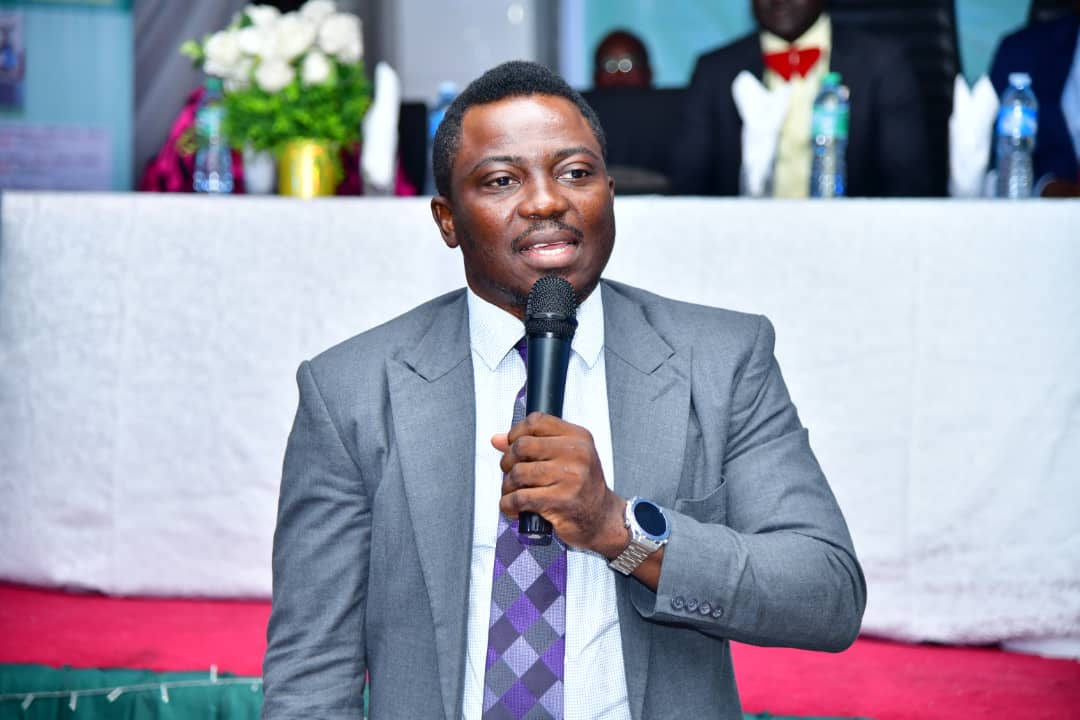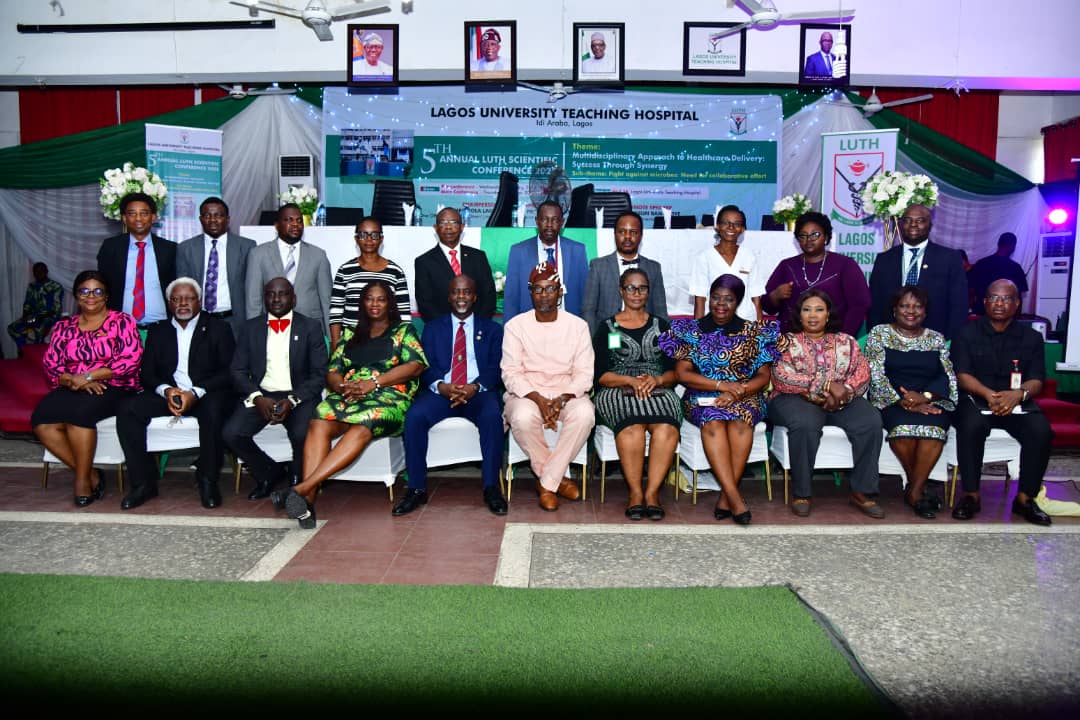
LUTH 5th Scientific Conference 2025 with the Theme: Multidisciplinary Approach to Healthcare Delivery: Success Through Synergy .
The Lagos University Teaching Hospital held its 5th Scientific Conference with the theme Multidisciplinary Approach to Healthcare Delivery: Success Through Synergy .
Speaking at the preconference Prof. Oluwole welcomed all attendees and applauded the CMD for initiating the Hospital’s first scientific conference and continuously championing LUTH’s threefold mandate of Patient Care, Research, and Training. He also extended appreciation to the organizers and gave special recognition to Prof. Oyin Oduyebo for her outstanding contributions to infection control at LUTH. He officially declared the conference open and wished everyone a fruitful engagement.
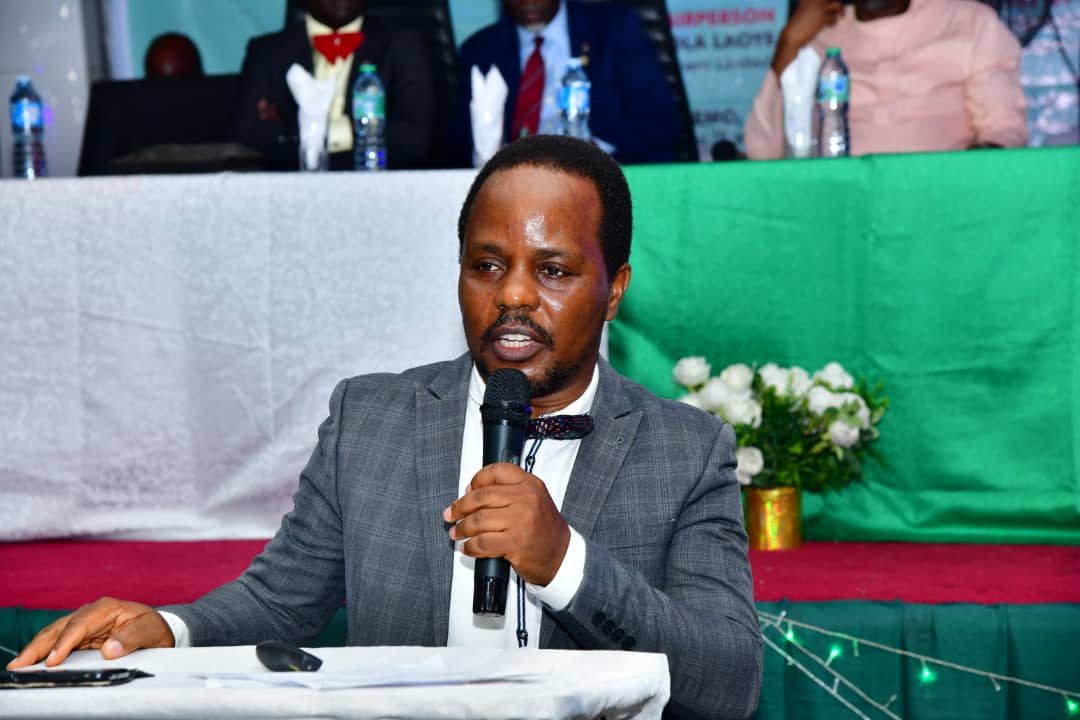

The Global Excellence Awards, a prestigious annual event, celebrates individuals and institutions that have made significant contributions to various sectors including health, education, technology, finance, and public service. Being named Healthcare Personality of the Year in such a competitive field speaks volumes about Prof. Adeyemo’s influence and the remarkable strides LUTH has made under his leadership.
Also at the event the Chairman of the scientific committee, Dr. Rufus Ojewola, further echoed the theme—Multidisciplinary Approach to Healthcare Delivery: Success Through Synergy—and emphasized the sub-theme: "Fight Against Microbes: Need for Collaborative Effort." He pointed out the increasing importance of a united front against antimicrobial resistance, urging stronger collaboration between clinical and non-clinical professionals, as well as government support. “This is a moment to reflect on where we are, where we are going, and how we can formulate stronger strategies to combat microbes,” he remarked.
The event continued with insightful presentations delivered by physicians and professionals who are experts in their respective fields.
Dr. Fela Oridota, Consultant Public Health Physician, called for military-level coordination in epidemic response. From managing Ebola to COVID-19, he emphasized that outbreaks aren’t just medical—they’re operational challenges requiring:
* Unified leadership and designated spokespeople
* Clear, panic-free communication
* Cross-departmental teamwork—from doctors to security personnel
* Integrated surveillance from the hospital to state level.
He concluded that epidemic response must be team-based, strategic, and grounded in public trust.
Also in her presentation, Nurse Janet Olaleye, Assistant Director of Nursing Services, LUTH, spotlighted the critical role nurses play in managing multidrug-resistant infections (MDROs). Referencing AME principles and practical experiences, she emphasized:
* Leadership in hand hygiene, PPE use, patient isolation, and staff education
* Quick action on lab results and psychosocial care for isolated patients
* Barriers like limited PPE and staff shortages
She commended LUTH management’s support and advocated for more funding, policy reforms, and government backing.
Dr. Philip Osun, Consultant Medical Microbiologist, delivered insights into LUTH’s strategy for combating Healthcare-Associated Infections (HAIs). Using a lab-based surveillance model, he noted:
* HAI types: bloodstream infections, catheter-related UTIs, SSIs, and ventilator-associated pneumonia
* Documentation gaps, low lab utilization, and limited IPC manpower
He recommended:
* WHO-aligned definitions for HAIs
* Enhanced teamwork and record-keeping
* Investment in IT and workforce expansion
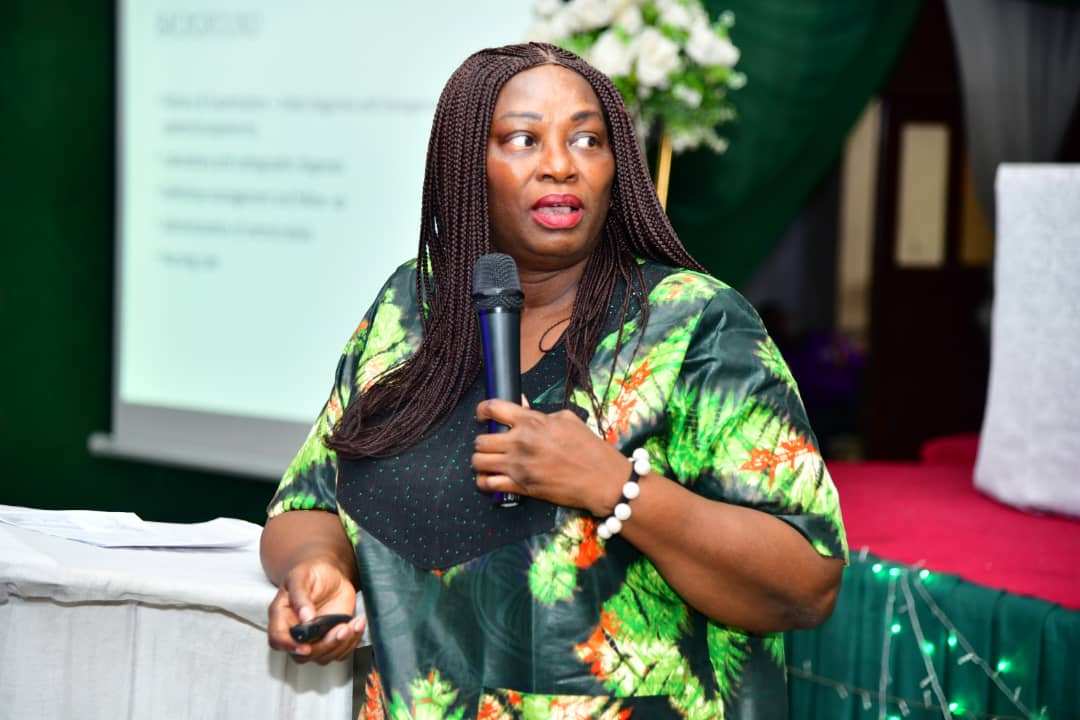
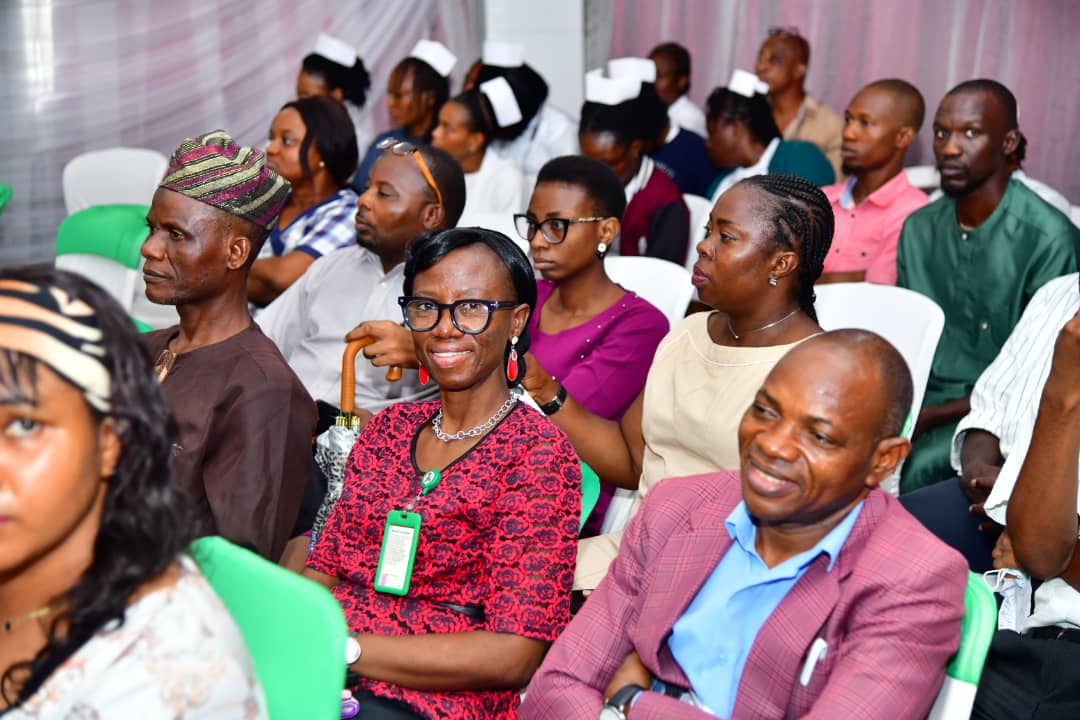
His key takeaway is "Infection control is a shared responsibility—not a delegated duty".
The fourth presental Dr. Chioma Osuagwu, Head of Medical Microbiology, advocated for broader use of LUTH’s Microbiology Laboratory Handbook. She emphasized:
* Using lab guides for accurate specimen collection and antibiotic choice
* Aligning clinical practice with policies like the Antibiotic Policy and IPC Manual
* Maximizing diagnostic accuracy, especially in emergencies
Her session reaffirmed the value of lab-guided decision-making in effective infection management.
Dr. Iorhen Akase, Consultant Physician, clarified misconceptions around sepsis—not just an infection, but an abnormal systemic response that leads to organ failure and death. He stressed that:
* All sepsis is severe; time is of the essence
* Clinicians must evaluate for infection, organ dysfunction, and shock
* Early detection tools like SOFA and qSOFA should be routine
He warned:“Antibiotics alone don’t save lives—organ support and prompt resuscitation are key."
Pharm. Ifeoma Obi, Assistant Director of Pharmacy, LUTH, introduced the Hospital’s implementation of the WHO AWARE classification to curb antimicrobial resistance. Antibiotics are categorized as:
* ACCESS: First-line, low-resistance antibiotics (≥60% of usage target)
* WATCH: Higher risk, to be used cautiously and guided by lab results
* RESERVE: Last-resort options, with stringent oversight
She emphasized that even correct use can foster resistance, urging smart selection, institutional guidelines, and continued training.
Here’s a caption-friendly version for Instagram:
Day 1 of the 5th LUTH Scientific Conference wrapped up with insightful sessions, expert-led discussions, and renewed commitment to tackling healthcare challenges together
